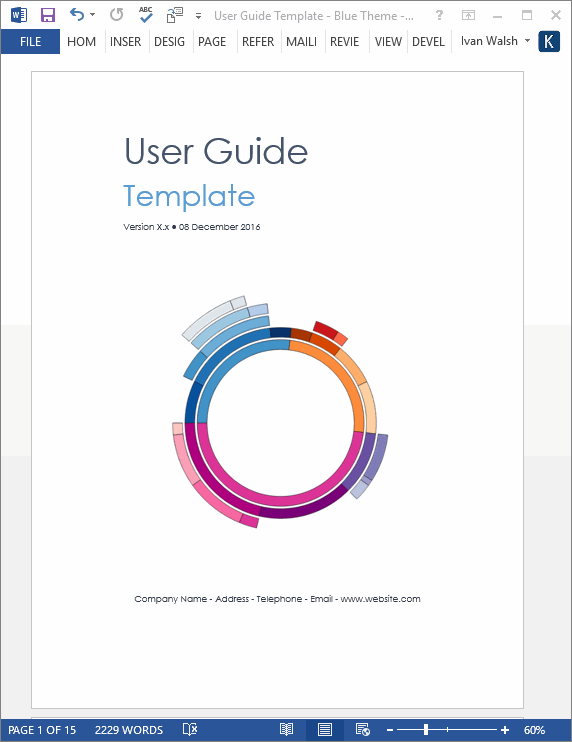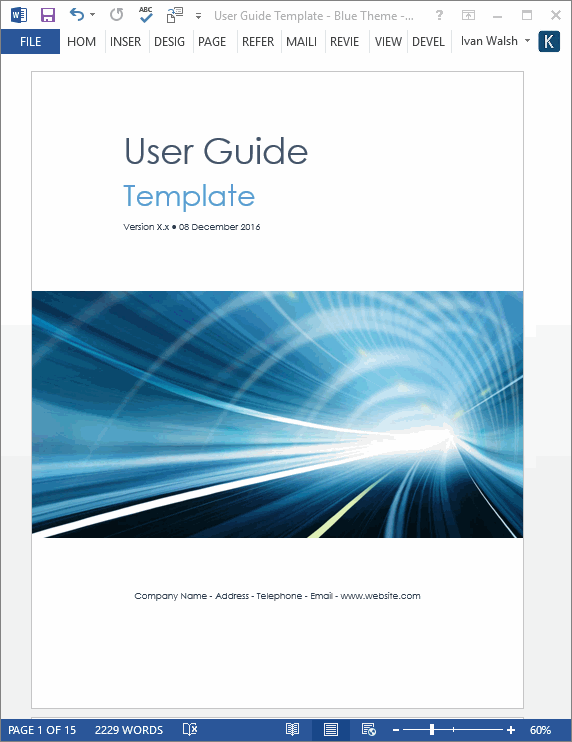User Guides
Difference Between User v End User in Technical Documents
When should I use ‘user’ instead of ‘end user’ in my user guides?
Let’s start with a definition of end user.
Definition: Where does the phrase ‘end user’ come from?
According to Wikipedia: An end user is a person who uses a product. The term is based in the fields of economics and commerce. A product may be purchased by several intermediaries, who are not users, between the manufacturer and the end user, or be directly purchased by the end user as a consumer. For example the end user of a pharmaceutical product is the patient who takes it, rather than distributors, pharmacists and physicians who may purchase it in their behalf; or the user can buy the product at a drugstore.
https://en.wikipedia.org/wiki/End_user
Investopedia, which has a financial glossary, sees it as: The true consumer of a product or service. The term “end-user” is used to distinguish the person who will actually work with the good or service from individuals who are involved in other stages of its development, production and distribution.
https://www.investopedia.com/terms/e/end-user.asp
There are three points to address here:
- Audience expectations
- Style guidelines
- Context of the materials
Let’s look at each.
Need a user guide template? Our MS Word and Apple templates can be used to create user guides, user manuals, getting started guides and other types of technical documents. A User Guide is an online or printed book that describes how to use a software application.
Download Now for $9.99 – Buy Here!
Learn more about these templates
Audience expectations when reading technical documents
Every read comes to a document with certain expectations. So, for example, when you open a User Guide, you expect an introduction to put things in context, more of that later, then a set of procedures, and possibly some troubleshooting tips. How do I do such as task.
Because you’ve read so many guides over the years, you, the reader, come to expect certain terms, phrases, layout and structures in the document you’re reading.
Common terminology is one of these.
- Do your readers expect to see User or End User?
- Is the phrase User or End User used in your other documents?
- Is there a specific reason why you prefer User instead of End User?
- What misunderstandings could occur if you chose one over the other?
Advantages of style guidelines
Most companies use either an internal style or rely on one of the industry standards, such as:
- Apple Publications Style Guide – editorial guidelines for text in Apple instructional publications, technical documentation, reference information, training programs, and the software user interface.
- Microsoft Manual of Style for Technical Publications – for technical documentation including use of terminology, conventions, procedure, design treatments, and punctuation and grammar usage.
- The Cambridge Handbook for Editors
- Fowler’s Modern English Usage
- The King’s English
- The BBC News Style Guide
- The Economist Style Guide
- The Guardian Style Guide
- The Associated Press Stylebook
- The Chicago Manual of Style
- The Yahoo! Style Guide
The advantage of a style guide is that it gives your documents:
- A consistent voice across all materials
- Ensure that all writers comply with these agreed words and phrase and
- Provides a reference for any questions or disputes between the writers
‘Well, it says in the style guide that we should…’
What this also means is that you, as the author of the user guide, need to decide which term to use –User or End User – and then add this to your own internal style guide.
Internal House Style Guides
This internal style guide doesn’t have to be lengthy. Some I’ve seen are less than five pages. But you need to cover the critical things in it. And one of these is whether you should use User or End User.
Once you’ve agreed on this, and it’s in the guide, then there is no further interpretation.
Follow the style guide!
Understanding the context of technical documents
The final point relates to context.
This means: what is the reader expecting at this specific moment in time?
In other words, sometimes it may be appropriate to use end user but may be not here. For example, in some companies the phrase end user refers to so-called ‘front line’ workers.
In others, it means users with the LEAST proficiency with your product; beginners and other low level users.
When I started in technical writing, ‘end user’ referred to the user at the very end of the line, i.e. the person using it in the real world, not Administrators, developers, and so on.
When to use ‘You’ in User Guides
I also try to balance the tone in the guides by speaking to the reader directly.
Instead of referring to this abstract concept – the user – I talk to you, the person reading this page. To me, it feels more natural.
Of course, if you overdo it, it sounds contrived as though I’m trying to be your BFF.
Summary
Personally, I try to avoid end user. There’s something negative about it. It seems to imply that the user isn’t that proficient with the system.
Also, the word ‘end’ has never sounded nice to me. It sounds too dark. While most of us may not mind begin referred to as the user – for a while, anyway – we probably don’t want to be called an end user. Doesn’t sound like a compliment, does it?



